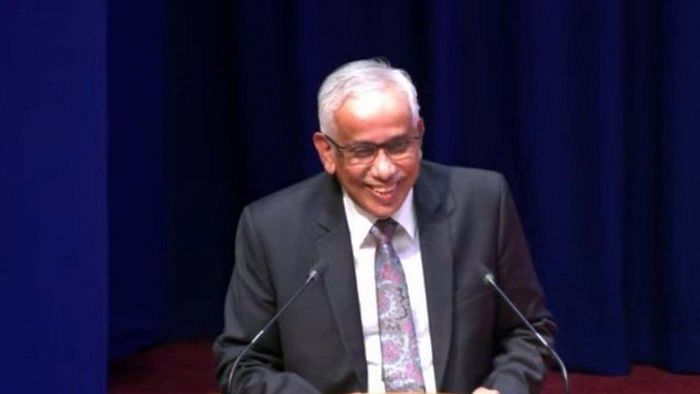
Elevated to the Supreme Court on February 17, 2017, Justice S Abdul Nazeer was part of several constitution benches in his six years at the apex court that delivered critical judgements, including the Ayodhya Ram temple verdict in 2019. He retired from the Supreme Court on January 4, and a little over a month later, on February 12, the Centre appointed him the Andhra Pradesh governor.
Karnataka Chief Minister Basavaraj Bommai and his cabinet colleagues K Sudhakar and C N Ashwath Narayan congratulated Justice Nazeer on his appointment. In his tweet, Bommai mentioned that the retired Supreme Court judge hailed from Karnataka. "Congratulations to former Supreme Court judge Justice S Abdul Nazeer from Karnataka on being appointed as the Governor of Andhra Pradesh," Bommai tweeted. Karnataka is scheduled for assembly polls in April.
On December 26, 2021, Justice Nazeer addressed the 16th National Council Meeting of the RSS-affiliated Akhil Bharatiya Adhivakta Parishad (ABAP) in Hyderabad on the topic 'Decolonisation of the Indian Legal System'. In his speech, Justice Nazeer said the Indian legal system was colonial and unsuitable for India's people, stressing on Indianisation of the legal system by learning from the legal traditions of "Manu, Kautilya, Katyayana, Brihaspati, Narad, Yagyavalkya and other legal giants of ancient India".
Also Read | The curious case of governors across India
Justice Nazeer was part of the five-judge Constitution bench that, in November 2019, paved the way for the construction of a Ram temple at the disputed site at Ayodhya and directed the Centre to allot a five-acre plot to the Sunni Waqf Board for a mosque. The Justice Nazeer-led five-judge Constitution benches delivered two separate verdicts this year, including the one which by a majority of 4:1 validated the legality of the Centre's 2016 decision to demonetise the Rs 1,000 and Rs 500 denomination currency notes, saying the decision-making process was neither flawed nor hasty. He was also a member of the benches that adjudged the reservation for Marathas in admission and government jobs and the fundamental right of freedom of speech and expression of high public functionaries.
CPI(M) leader and Rajya Sabha member A A Rahim criticised Justice Nazeer's appointment as a governor. "It is highly condemnable. He (Nazeer) should refuse to take up the offer. The country should not lose confidence in its legal system. Such decisions of the Modi government are a blot on Indian democracy," Rahim said in a Facebook post.
The Marxist party leader said the retired judge was appointed in the gubernatorial post within six weeks after his retirement and pointed out that in a speech at the ABAP meeting, Nazeer opined that "the Indian legal system has been continuously ignoring the legacy of Manusmriti". "His words did not reflect the high degree of impartiality and loyalty to the Constitution that a judge serving in the higher judiciary should possess," Rahim said.